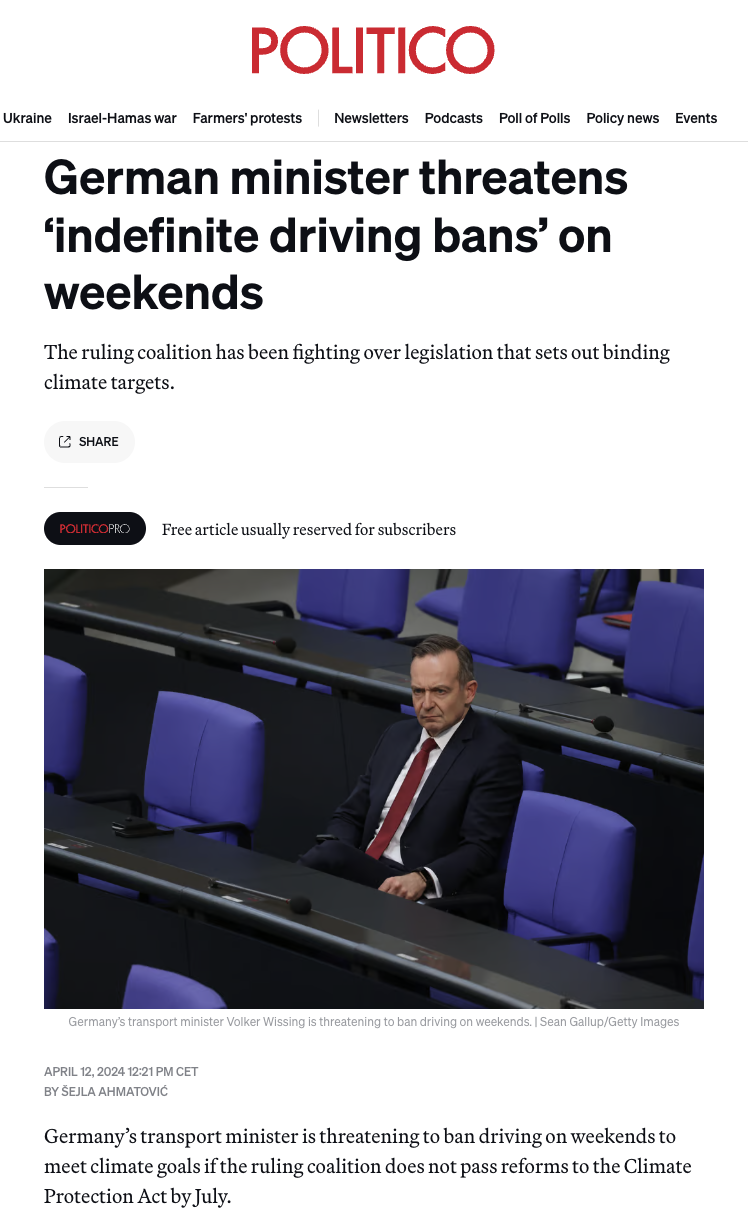https://www.cagw.org/thewastewatcher/cancel-culture-goes-after-famed-environmentalist
We hoped everyone enjoyed grilled hamburgers and hotdogs this Independence Day holiday without worrying too much about sending some carbon dioxide into the air. Michael Shellenberger’s new book, “Apocalypse Never: Why Environmental Alarmism Hurts Us All,” explains why most forms of renewable energy are bad for the environment and not practical for the world’s energy needs. He has been a climate and environmental activist for more than 30 years and is the founder of Environmental Progress.
But chances are very few people have heard much about the book because it goes against years of environmental alarmist doctrine.
John Robson, a writer for the Canada’s National Post, wrote in a June 30, 2020, article, “Forbes Falls to Cancel Culture as it Erases Environmentalist’s Mea Culpa,” that the magazine “removed an article by noted environmentalist Michael Shellenberger in which he ‘apologized’ for the ‘climate scare.’” Robson said, “It’s big news when somebody prominent apologizes for being badly wrong on a major public matter, promises to do better going forward and urges others to do the same, right? Unless the person commits heresy like, say, Michael Shellenberger.”
According to Robson, in spite of Shellenberger’s impeccable environmental credentials, the cancel culture decided to disavow any knowledge of his past actions after his Forbes article stated, “On behalf of environmentalists everywhere, I would like to formally apologize for the climate scare we created over the last 30 years. Climate change is happening. It’s just not the end of the world. It’s not even our most serious environmental problem.”
The article quickly disappeared from the Forbes website and Robson inquired why it was removed. He said the magazine’s explanation was something that would make any “seasoned politician or bureaucrat blush” as they replied, “You can attribute the below statement to a Forbes spokesperson: Forbes requires its contributors to adhere to strict editorial guidelines. This story did not follow those guidelines, and was removed.”
Robson wrote that the “internet is a really lousy place to hide things” and that others often archive pieces that are removed. He pointed out that the website WattsUpWithThat.com has archived the Shellenberger’s persona non grata piece.
The Washington Times wrote in a July 1 column that Shellenberger “got off to a rocky start with his book launch when Forbes deactivated his column apologizing for the ‘climate scare,’ but the magazine may have done him a favor.” By doing so, the magazine created a backlash and provided a lot of publicity for his book just before its official release. The Times wrote, “’Apocalypse Never’ represents a rarity, a major release by a prestigious publisher that refutes widely repeated environmental talking points; accuses climate activists of misleading the public and contends that policy solutions such as green energy are making matters worse.” Shellenberger told the Times that many of the renewable energy sources are worse for the environment than fossil fuels because it requires more land, more materials, more mining, more metals, and more waste.
Citizens Against Government Waste discussed some of the problems caused by renewable energy, in particular solar panels, in a January 2020 blog post, the “Green New Deal and the Environmental Damage it Would Cause.” The blog pointed out that a study by Paul Driessen at the Heartland Institute found it would take 18.7 million solar panels, equal to a land mass the size of New York and Vermont combined, to replace all the fossil fuel and nuclear power we currently use.
John Tierney penned in a June 21, 2020 Wall Street Journal book review, “Apocalypse Never Review: False Gods for Lost Souls,” how Shellenberger narrated “environmental progress around the world and crisply debunks myth after gloomy myth. No, we are not in the midst of the ‘sixth mass extinction,’ because only 0.001% of the planet’s species go extinct annually. No, whales were not saved by Greenpeace but rather by the capitalist entrepreneurs who discovered cheaper substitutes for whale oil (first petroleum, then vegetable oils) that decimated the whaling industry long before activists got involved. No, plastics don’t linger for thousands of years in the ocean; they’re broken down by sunlight and other forces. No, climate change has not caused an increase in the frequency or intensity of floods, droughts, hurricanes and tornadoes.”
Tierney cited how Shellenberger became disillusioned with his “New Apollo Project,” a forerunner to Rep. Alexander Ocasio-Cortez’s Green New Deal. While many of its ideas were adopted by President Obama’s administration and received more than $150 billion in federal funding, a disproportionate share “went to companies that enriched donors to the Obama campaign but failed to yield practical technologies.”
Mr. Shellenberger deserves a lot of credit for releasing this book and clearly, he did not do it lightly. He said in the Forbes’ article, “Until last year, I mostly avoided speaking out against the climate scare. Partly that’s because I was embarrassed. After all, I am as guilty of alarmism as any other environmentalist. For years, I referred to climate change as an ‘existential’ threat to human civilization, and called it a ‘crisis.’ But mostly I was scared.” He was frightened of losing friends and funding for speaking out and that he “mostly stood by and did next to nothing as my fellow environmentalists terrified the public.”
Mr. Shellenberger’s book should be a good and interesting read, especially as the Green New Deal becomes a bigger topic of conversation for the 2020 election. By standing up to the environmental alarmism mob and its apocalyptic future by telling the truth, Shellenberger may find he gains more friends and a thankful country, along with a more industrialized, wealthier, and healthier rest of the world, which should certainly not be cancelled.
The WasteWatcher is the staff blog of Citizens Against Government Waste (CAGW) and the Council for Citizens Against Government Waste (CCAGW). For questions, contact [email protected].


